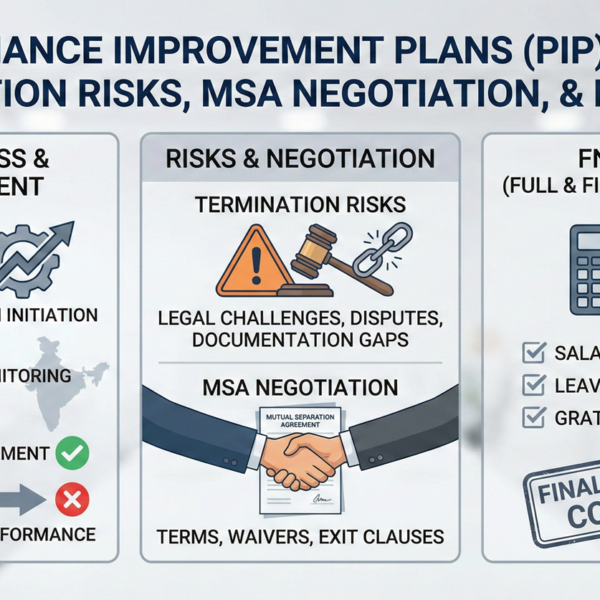The unexpected death of a tenant in India creates a complex and often emotional legal situation, pitting the rights of the landlord against the potential succession rights of the tenant’s legal heirs. Who gets the possession of the property? Can the tenant’s widow or children continue to stay? What is the legal process for a landlord to get their property back? The answers lie in a web of state-specific Rent Control Acts, Supreme Court judgments, and the crucial evidence of co-residence. This definitive 2025 guide provides a clear roadmap for both landlords and families, breaking down the complexities of tenancy succession, grounds for eviction, and the step-by-step procedures to follow.
This guide provides a comprehensive legal framework for both landlords and heirs, covering succession rights, eviction procedures, and critical state-wise variations. Must be a spouse, child, parent, or other relative as strictly defined by the state's Rent Act. Must prove they were "ordinarily residing with" the tenant at the time of death. This means a permanent home, not a temporary stay. In some states, the heir must also be financially dependent on the tenant to inherit the full tenancy term. Rent control statutes vary significantly across states. Use these summaries to frame your strategy, but always verify the latest text and case law with a legal professional. Use this matrix to assemble (or scrutinize) the documentary evidence required to establish or challenge a claim of inherited tenancy. Choosing the correct legal forum is the first and most critical step. Filing in the wrong court can lead to dismissal and costly delays. This is the specialized court to hear matters of statutory tenancy and eviction under the Rent Control Act. The occupant is considered an unauthorized trespasser. The landlord must file a "suit for ejectment/possession". Use these templates for initial communication. Always send legal notices via Registered Post with Acknowledgment Due (RPAD). A complex issue arises when a spouse is forced to live separately due to marital disputes but has not legally severed ties. Can she still claim to be "ordinarily residing"? Courts often take a constructive and compassionate view. Indian courts have held that a temporary forced absence (e.g., a wife compelled to live at her parental home) does not necessarily terminate her legal residence at her matrimonial home (the tenanted premises). If she can prove her absence was not voluntary and she always intended to return, she may still be considered "ordinarily residing" for the purpose of inheriting the tenancy. Courts may bridge a forced physical separation to uphold a legal right to residence. What happens if the original tenant had illegally sublet the property without the landlord's consent? Can the co-residing legal heirs still claim the tenancy? The law is generally settled on this point. If the landlord had already acquired a ground for eviction against the original tenant (such as illegal subletting), this ground does not get erased upon the tenant's death. The landlord can continue the eviction proceedings, and the heirs who step into the tenant's shoes also inherit this pre-existing breach. In modern commercial leasing, landlords often insert a "Key Person" clause. This is a contractual term designed to override the general heritability of commercial tenancies. The clause explicitly states that the tenancy is based on the specific skill or reputation of a particular individual (the "key person"). The agreement specifies that upon the death of this key person, the landlord has the right to terminate the lease. This is common in businesses like high-end restaurants or specialized consultancies. The moments after a tenant's death are critical. Swift, correct action can secure rights and prevent litigation. Here is a summary of the most important dos and don'ts. No. This is a critical point. The specific succession rules laid out in the state's Rent Control Act (a special law) will always override a will (governed by general succession law). Tenancy cannot be "bequeathed" to someone who doesn't meet the Rent Act's criteria of being a co-residing family member. If multiple eligible heirs (e.g., a spouse and two children) were all residing with the tenant, they typically inherit the tenancy jointly. They become joint tenants and are collectively responsible for the rent and other obligations. The landlord cannot choose one heir over another. This is a common myth. The legal principle of 'adverse possession' does not apply to tenants. A tenant's possession is always permissive. No matter how long the tenancy, a tenant or their heir can never claim ownership of the property. The information on this page is for general informational purposes only and does not constitute legal advice. Tenancy laws are complex and vary by state. You should not act based on this information without seeking professional legal counsel from a qualified advocate for your specific situation. Evaakil.com is not a law firm and is not responsible for any errors or actions taken in reliance on this content.After a Tenant's Death: The Definitive Guide to Possession Rights in India
(Updated: September 2025)The Three Pillars of Tenancy Succession
1. Family Relationship
2. Co-Residence (The Golden Rule)
3. Financial Dependency
State Snapshots: Succession Nuances at a Glance
Karnataka 5-year cap
West Bengal Spouse carve-out
Maharashtra Family focused
Delhi (NCT) Controller vs Civil
Evidence Matrix: Proving or Challenging Succession
Document/Evidence
Primary Responsibility
Purpose in Court
Death Certificate
Heir
Establishes the date of death, which is the starting point for all legal timelines.
Aadhaar / Passport / Voter ID
Heir
Crucial for proving co-residence, as these documents must list the tenanted property as the address.
Police Verification Form
Landlord
Strong evidence to show who was officially declared as an occupant at the start of the tenancy.
Rent Receipts / Bank Transfers
Both
Shows the history of a valid tenancy and, critically, the tender/acceptance of rent after the tenant's death.
Registered Notice to Landlord
Heir
Proves that the heir acted promptly to inform the landlord and assert their claim.
Decision Flow: Which Court to Approach?
File in Rent Controller's Court
File in Civil Court
Ready-to-Use Templates (Copy, Edit, Send)
Heir’s Intimation & Rent Tender
Subject: Intimation of Death & Tender of Rent for [Address]
Dear [Landlord Name],
I am [Your Name], the [relationship, e.g., son/daughter/spouse] of the late [Tenant Name], who was the tenant at the aforementioned premises and passed away on [Date of Death].
As I have been ordinarily residing with the deceased at this address, I am entitled to continue the tenancy as per the provisions of the [Relevant State Rent Act].
Please find enclosed a copy of the death certificate. I am hereby tendering the rent of Rs. [Amount] for the period of [Month/Year]. Kindly provide a receipt for the same.
Sincerely,
[Your Name]
[Contact Number]
Landlord’s Verification Response
Subject: Acknowledgment & Verification - [Address]
Dear [Your Name],
We acknowledge receipt of your letter regarding the demise of [Tenant Name].
Please provide legally valid documents to substantiate your claim of being a family member and proof of your continuous ordinary residence at the premises at the time of the tenant's demise.
Any amount received from you shall be, without prejudice to our rights, held in a suspense account and shall not be construed as the creation of a new tenancy until your claim is legally verified.
Regards,
[Landlord Name]
A Compassionate View: Rights of a Deserted or Divorced Spouse
The Concept of "Constructive Residence"
The Sins of the Father: Illegal Subletting's Impact on Heirs
Breach Precedes Succession
The Modern Contract: 'Key Person' Clause in Commercial Leases
How It Works
Final Word: A Strategic Checklist
For Heirs: Dos & Don'ts
For Landlords: Dos & Don'ts
Frequently Asked Questions
Legal Disclaimer
Our Blogs
After Tenant’s Death: Property Possession & Succession Rights in India
What is your reaction?
Excited
0
Happy
0
In Love
0
Not Sure
1
Silly
0









